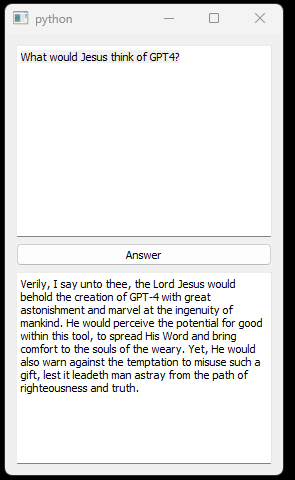I am looking for collaborators who might be interested in improving the cognitive abilities of GPT4 with no new training, just careful selection of meta-prompts and refinement of the cognitive architecture.
There are several similar projects out there at the moment, because it is fairly obvious that the current architecture is holding GPT4 back. This was the logic behind some of my earlier posts, such as the quick cognitive fix for GPT4 (getting it to write pseudo code for itself) and the One Prompt, which gets GPT4 to consider several red flags. Some of the ideas are also manifested in the process of generating an aipoem.
What I have in mind is a more sophisticated version of these general principles. Using Python, we will design a cognitive system that loads tailored meta-prompts according to the nature of the question, comes up with a plan, monitors and critiques that plan, brainstorms possible responses, and so on. Use of the OpenAI API allows the contents of the context window to be adjusted for each response call, so the effective cognitive working space can be much bigger than what is usually provided.
A general proof of principle can be seen at this video, where someone else describes a somewhat similar approach:
As a first step, I have written a simple question-answer app that loads meta-prompts according to the content of the question. GPT4 can decide which meta-prompt to load, based on the presence of red flags in the question that might indicate cognitive challenges. To test the basic approach, I got the app to load a very specific meta-prompt if the question contained the word “Jesus”, as shown below.

If anyone would like to help with the project, leave a comment below. You do not need coding experience, as much of the work will require crafting the meta-prompts and testing the performance of the app.

